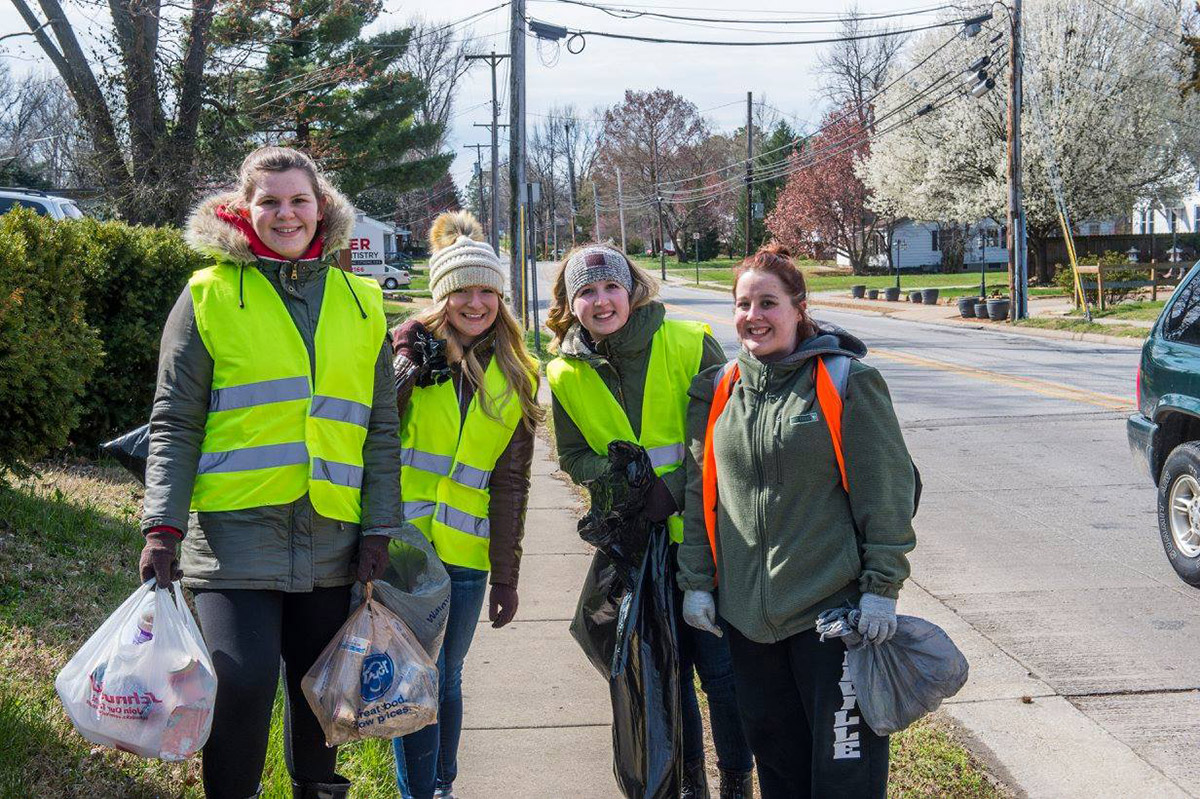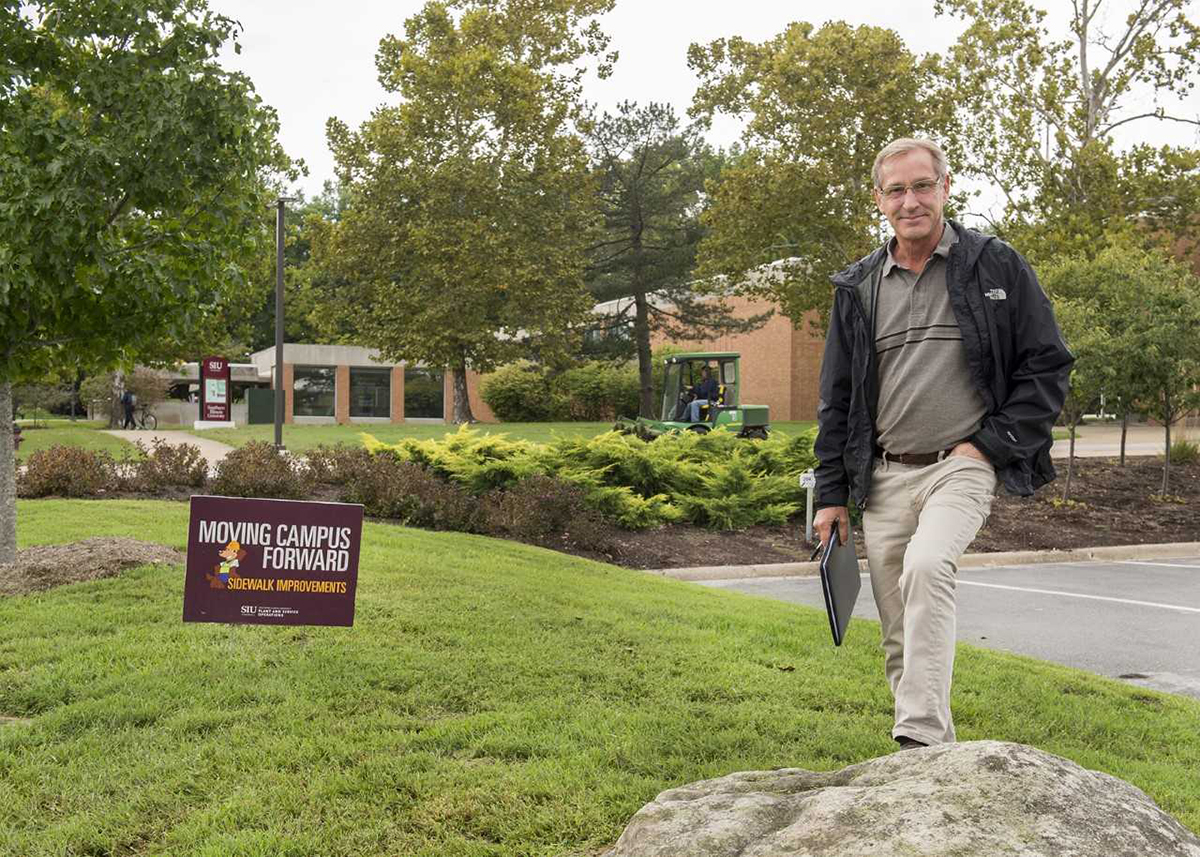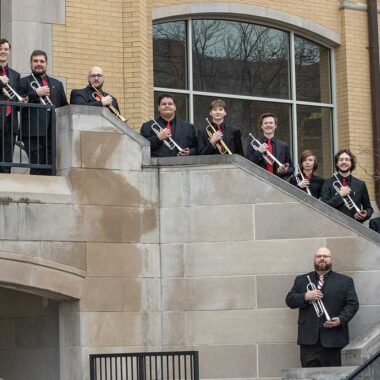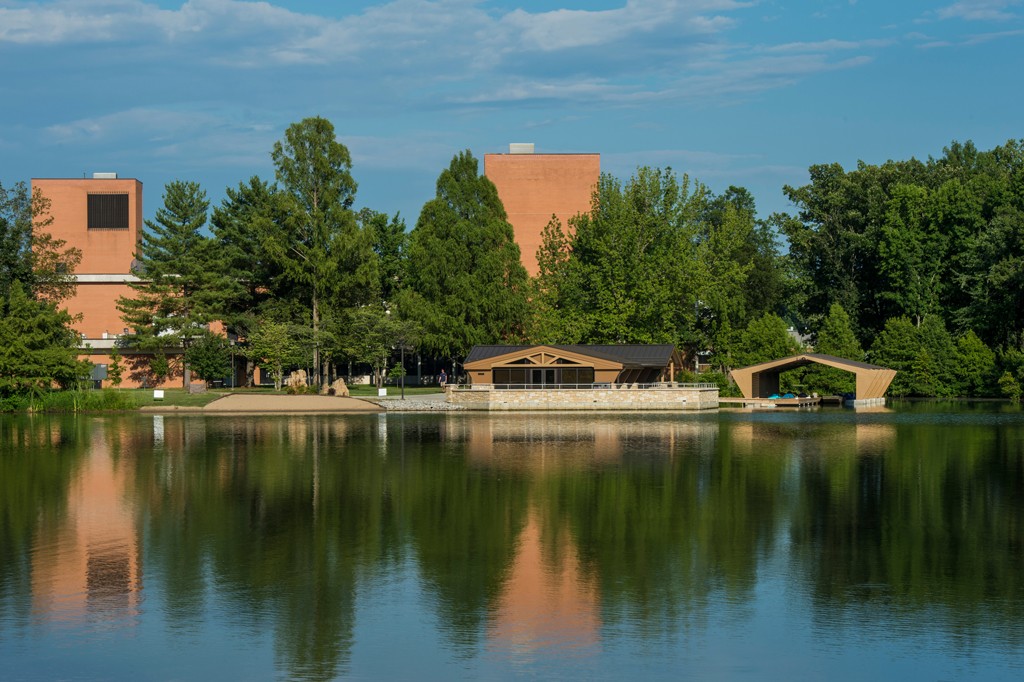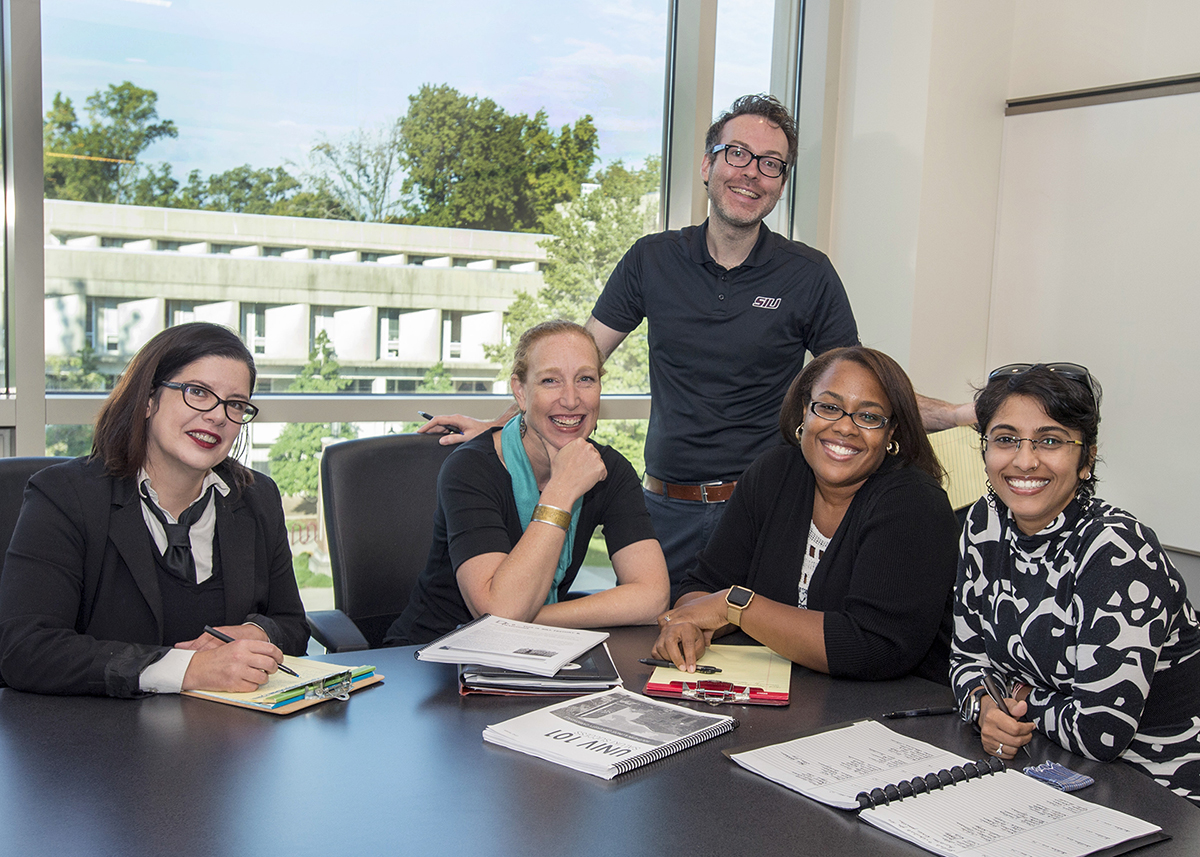
With a national trend where 40 percent of college freshman do not make it to graduation, the faculty within SIU’s Saluki Success Program are working to increase students’ chances for achievement.
The work doesn’t end with the UNIV 101: Saluki Success program that is required of all first-year students. A redesigned curriculum that includes more courses available to all students, monthly dining hall gatherings and paying attention to detail is vital in helping students become actively involved in their education. Much of the work is done outside of the 8 a.m. to 4:30 p.m. setting.
More than just a first-year experience course
While the one-time University College started nearly a decade ago was thought of as only offering UNIV 101: Saluki Success, that is now is only a part of the program, said Nick Weshinskey, Saluki Success Program coordinator.
The new name adopted this summer better highlights the program’s three objectives and “goes a long way to emphasize the three pillars upon which everything we do is built,” he said.
- Building student success academically and socially.
- Building community.
- Building a sense of pride in SIU Carbondale history and traditions.
Faculty serve as case managers and mentors
The program instructors are:
- Laura Borger
- Gauri Pitale
- Casheena Stephens
- Abigail Wheetley
There will be nearly 900 students in their offices over the course of an academic year. Getting to know the students outside of the classroom makes the classroom experience for students that much better, Weshinskey said. The program also assists students to navigate financial aid issues, counseling services, and coordinate with Veterans Services and other instructors when those students are deployed.
Borger views the staff as cases managers willing to help students with all of their needs as they arise. The work doesn’t have to involve academics or learning to navigate D2L and all the different electronic platforms, she said. It can also include students learning about time management, receiving help with scheduling and tutoring or help with social and emotional concerns.
“Studies show that if students have one adult in their life in college who they can connect to and have mentorship with, their chances of succeeding are exponentially higher,” Borger said. “It just takes one adult mentor, professor, adviser who will help them.”
Being ‘transparent and honest’ with students
Stephens said honesty and transparency are key to getting students to open up and develop a trust. And it doesn’t have to be about just academics.
Weshinskey said it is important for students to feel like they matter.
“On a campus like this it’s really easy to feel that you are just a number or another face or you are in a lecture hall with 200 other people and you are not known by anybody,” he said. “We know our students. We know their names, we know their interests, we know their family histories and we have met their families.”
Hosting dinners and meeting with students
Pitale and Wheetley host dinner in dining halls at least once a month and use it as a time to grade papers. That exercise help them understand students’ problems – everything ranging from roommates to exams, Pitale said.
Wheetley hosted a dinner a week before Thanksgiving last year. About 50 students attended, with some bringing cookies, casseroles and food in crock pots, she said.
“I wanted to make sure they had that if they couldn’t go home for Thanksgiving,” she said. “I wanted them to have at least that much.”
Important to balance care and expectations
The instructors have great relationships with their students, even those who have failed their classes. It’s important for students to learn expectations, choices, and consequences, and how to take ownership of their education.
“We do not mollycoddle them,” Pitale said. “If they are not doing the work they are supposed to do, they will still get no points. I will sit and laugh with them and joke with them and hang out with them and go for a walk with them and they will still get no points they don’t deserve if they have not done the work.”
Expanded mission beyond UNIV 101
In UNIV 101: Saluki Success, first-year students are engaged in a number of topics, including:
- Academic survival skills.
- Campus resources.
- Cultural competence.
- Financial literacy.
- SIU history.
However, the programs does not end there. Other courses available for students are:
- UNIV 201 – a course on campus and community leadership will launch with the fall 2019 semester.
- UNIV 301 – a course for juniors and seniors that focuses on the transition from college to the workforce, including resuming preparation, securing internships, personal branding, networking and job search tools.
- UNIV 401 – launching in spring 2019, will focus on preparing for and transitioning to graduate school.
Proud of retention numbers and student success data
Weshinskey points to the additional services provided to provisionally admitted students. Those students receive an extra hour of guided mentorship and academic support each week. Saluki Success collaborates with Exploratory Student Advisement and the Center for Learning Support Services to support students and the percentages of students who finish in good academic standing and are retained continue to rise, he said.
